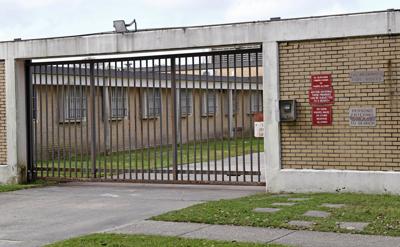Chester Cedars, a former prosecutor, says Acadiana is facing a housing crisis. The region severely lacks the space needed to house juvenile offenders awaiting trial — leaving juveniles far from family, resources and taxpayers footing the bill.
The Acadiana Regional Juvenile Justice District aims to solve the issue but, he warns, an answer is still likely years away.
The district, created in the 2023 legislative session, is a collaboration between nine Acadiana parishes: Acadia, Allen, Evangeline, Iberia, Jefferson Davis, St. Landry, St. Martin, St. Mary, and Vermilion. The idea was originally conjured by New Iberia City Judge Trey Haik and 16th Judicial District Attorney Bo Duhe, said District 46 State Representative Mike Huval.
When juveniles are arrested for minor offenses, they are often released back to a parent or guardian while they await their trial date. For major offenses, a juvenile might face pretrial detainment at a juvenile detention center, and for rural parishes, few placement options exist.
“For most of Louisiana, there is no space, the closest facility to house them is in Jones County, Mississippi,” said Cedars, who is president of St. Martin Parish.
In the past, a juvenile arrested in St. Martin Parish would be sent to Lafayette, Cedars said. As Lafayette grew, they couldn’t offer any space to St. Martin. New Iberia had a similar agreement with Assumption Parish’s detention center before it shut down in 2017.
Gov. John Bel Edwards's signing of Louisiana’s Raise the Age Act in 2016 also limited space, Huval said, and it led to juveniles committing more crimes.
“That's what caused, in my opinion, the biggest problems. There may be places for them, but you can no longer mix them with adult prisoners,” Huval said.
The law, which went into effect in 2019, designated 17-year-olds as juveniles and ensured placement in juvenile facilities. The aim is to avoid placing children with adult offenders and introducing juveniles into the adult criminal justice system.
Louisiana juveniles are instead transported to such states as Alabama and Mississippi, leaving the arresting parish or municipality footing the costly bill.
For rural parishes, the cost hits even harder. Cedars said it costs $200 a day to house a juvenile in Mississippi and $1,400 every time they need to come back to Louisiana for court appearances. A centralized location for the region would be a more cost-effective option for the parish and local court system in the long run.
“[We can] thus afford to pay the juvenile all the due process rights, and at the same time protecting public safety and protecting the public fisc(als) because you will now be in the position to move a case much quicker,” Cedars said.
Cedars also believes a new detention center is a means toward juvenile justice, he said. The facility will offer rehabilitation, education, access to state services, and, most importantly, reliable access to family and legal counsel.
“You have a situation where a juvenile is being housed in Jones County Mississippi. Away from any health care or mental care professional, away from his or her attorney being transported hundreds of miles for a court appearance,” Cedars said, “It’s hard to find that is a just system.”
The biggest hurdle facing the district now is convincing Acadiana region residents to fund the facility's construction, Cedars said.
“That ugly three-letter word called tax,” Cedars said. “I think that has to be the first issue to address the sustainability of the district. ... I don’t know how that’s going to be done.”
Appointments have yet to be made for the district and planning and construction might be years away. The cost of the project is also still unknown but would likely be in the millions of dollars with one estimate of $15 million to build along with operational costs for a facility in the West Baton Rouge area.
Cedars, who isn’t seeking reelection, said the next parish president is going to have to convince the public to agree to a millage to fund the project. The commission is also going to have to find state and federal funding avenues to limit the burden on Acadiana taxpayers, Cedars said.
“Juvenile justice is an issue that is really serious and something local governing authorities need to be cognizant of. I think this is a major first step, but it’s just that, a first step,” Cedars said.
Want to help? The Acadiana Advocate has partnered with Report for America to fund this reporter position to cover rural areas and news deserts. Stephen Marcantel was hired for that position. Report for America covers part of his salary; in order to fund his continued reporting, we need donations from readers like you. Donate here

